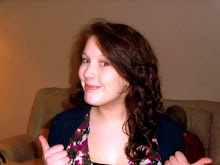
Welcome to the process of Inception, where your secrets are not safe and your subconscious is at risk of infiltration and manipulation by the very best in corporate espionage.
From The Dark Knight director Christopher Nolan, comes this summer’s most thrilling creation and there’s talk that it’s the best film he’s ever made.
The marketing campaign had kept much of the storyline under wraps until a few weeks before the film’s release, sparking discussion online and among Nolan’s fans as to what Inception, in this sense, was. But the limited release of information didn’t dampen the public’s desire to see the film and when it was released it was clear it had been well worth the wait with the opening weekend taking in $62,785,337 alone.
Dom Cobb (Leonardo DiCaprio) is a skilled ‘Extractionist’ who infiltrates his subject’s mind during a dream state to steal valuable secrets for those who’ve contracted his services. This job has, however, made him an international fugitive and as such he has been unable to go home to his children. A proposition from Saito, an influential businessman (who just moments earlier had been one of the team’s latest victims) comes up and Cobb is faced with a conundrum. Dare he risk attempting the seemingly impossible feat of Inception – planting a single idea in a person’s subconscious for their own development rather than extracting the information like usual, to get home? Well it wouldn’t be such a compelling film if he’d refused, would it?
With such a complex narrative structure, it would have been easy for the characters to have become submerged by the plot, but Nolan chose his cast perfectly and they alone keep this film readable. DiCaprio, who has been ridiculed in the past for his choice of roles (until that is, his performance in The Departed) is sublime. He anchors the entire plot as we see a man who is constantly battling the internal turmoil played out in these dream scenes in the form of the appearance of his late wife, Mal and the duty to his team who have entrusted their minds, somewhat unknowingly, to his hands. Ellen Page of indie hit Juno fame, is notably good as super-intuitive Ariadne – who becomes ‘The Architect’ – the person responsible for constructing the layout of the dreams both the team and their marks find themselves in. Joseph Gordon-Levitt is also good as ‘The Point Man’ – essentially Cobb’s second in command, Arthur. While everyone else is in one of many dream lands, we witness Arthur single handedly kicking arse in a zero gravity fight whilst still managing to rig explosives and look after his conked-out colleagues.
The dream visuals are simply magnificent. Paris folding in on itself is one particular treat not to be missed. The CGI at one point is quite literally explosive as we see a central city street spontaneously exploding bit by bit before the eye. The way that occurrences in the ‘real’ world are transferred to the many dream worlds is very clever. For example, gallons of water breaking through the walls in sync with the real world bath water Cobb is being ‘kicked’ into is very well done.
Nolan’s ability to uphold the verisimilitude of the threat of a life in nothingness if someone is killed in the dream is strong enough to engage the audience who may not have cared had a character ‘died’ since they’d just wake up again. In fact, never before has a film based on a series of dream sequences had so much fluidity and believability as this.
The single piece of music throughout the film is a song speaking of regrets by Edith Piaf. Interesting choice since Marion Cotillard (Mal) won an Oscar for her performance of the legendary singer, but its real charm comes in that it makes Cobb’s regret-soaked feelings towards his late wife ever more poignant. Mal is his projection – the freight train in his thoughts – and the very fact that she becomes nemesis to the team at various points in the narrative keeps it fresh.
This film will certainly make you think.









